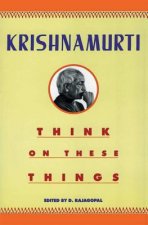
Kód: 02177941
Dignaga on the Interpretation of Signs
Autor R.P. Hayes
Buddhist philosophy in India in the early sixth century C. E. took an important tum away from the traditional methods of explaining and systematizing the teachings in Siitra literature that were attributed to the Buddha. The new d ... celý popis
- Jazyk:
 Angličtina
Angličtina - Vazba: Brožovaná
- Počet stran: 365
Nakladatelství: Springer, 2012
- Více informací o knize

6849 Kč

Skladem u dodavatele v malém množství
Odesíláme za 13-16 dnů
Potřebujete více kusů?Máte-li zájem o více kusů, prověřte, prosím, nejprve dostupnost titulu na naši zákaznické podpoře.
Přidat mezi přání
Mohlo by se vám také líbit
Darujte tuto knihu ještě dnes
- Objednejte knihu a zvolte Zaslat jako dárek.
- Obratem obdržíte darovací poukaz na knihu, který můžete ihned předat obdarovanému.
- Knihu zašleme na adresu obdarovaného, o nic se nestaráte.
Více informací o knize Dignaga on the Interpretation of Signs
Nákupem získáte 685 bodů
 Anotace knihy
Anotace knihy
Buddhist philosophy in India in the early sixth century C. E. took an important tum away from the traditional methods of explaining and systematizing the teachings in Siitra literature that were attributed to the Buddha. The new direction in which several Indian Buddhist philosophers began to move was that of following reasoning to its natural conclusions, regardless whether the conclusions conflicted with traditional teachings. The central figure in this new movement was DiIinaga, a native of South India who found his way to the centre of Buddhist education at Nalanda, studied the treatises that were learned by the Buddhist intellectuals of his day, and eventually wrote works of his own that formed the core of a distinctly new school of Buddhist thought. Inasmuch as virtually every Indian philosopher after the sixth century had either to reject Dirinaga's methods or build upon the foundations provided by his investigations into logic, epistemology and language, his influence on the evolution of Indian philosophy was considerable, and indeed some familiarity with Dirinaga's arguments and conclusions is indispensable for anyone who wishes to understand the historical development of Indian thought. Moreover, since the approach to Buddhism that grew out of Dirinaga's meditations on language and the limits of knowledge dominated the minds of many of the scholars who took Buddhism to Tibet, some familiarity with Dirinaga is also essential to those who wish to understand the intellectual infrastructure of Tibetan Buddhist philosophy and practice.
 Parametry knihy
Parametry knihy
Zařazení knihy Knihy v angličtině Humanities Philosophy Non-Western philosophy
6849 Kč
- Plný název: Dignaga on the Interpretation of Signs
- Autor: R.P. Hayes
- Jazyk:
 Angličtina
Angličtina - Vazba: Brožovaná
- Počet stran: 365
- EAN: 9789401078061
- ISBN: 9401078068
- ID: 02177941
- Nakladatelství: Springer
- Hmotnost: 587 g
- Rozměry: 235 × 155 × 21 mm
- Datum vydání: 21. January 2012
Oblíbené z jiného soudku
-

What Are You Doing With Your Life?
337 Kč -

ZEN and the Art of Happiness
332 Kč -

Egyptian Yoga
524 Kč -

Krishnamurti'S Notebook
389 Kč -

Strategy and the Fat Smoker
625 Kč -

Hagakure
274 Kč -

Path to the Middle
1110 Kč -

Yoga and Psychotherapy
356 Kč -

Initiation into Egyptian Yoga
524 Kč -

Kamasutra
258 Kč -

Light on Yoga
460 Kč -

Meditations
294 Kč -

Freedom from the Known
283 Kč -

Little Book of Ikigai
273 Kč -

Four Chinese Classics
551 Kč -

Perennial Psychology of the Bhagavad-Gita
425 Kč -

Conference of the Birds
283 Kč -

Taoism
521 Kč -

Yoga Tradition
900 Kč -

First and Last Freedom
382 Kč -

Analects
249 Kč -

I and Thou
221 Kč -

Hyperobjects
660 Kč -

Kundalini and the Chakras
368 Kč -

Tibetan Book of the Dead
208 Kč -

Zhuangzi: The Complete Writings
1002 Kč -

Play
354 Kč -

Life and Teaching of the Masters of the Far East: Volume 2
295 Kč -

Tao Te Ching (The Way) by Lao-Tzu
556 Kč -

Deeper Dimension of Yoga
605 Kč -

Analects
325 Kč -

Think on These Things
327 Kč -

Royal Path
326 Kč -

Tibetan Book of the Dead
379 Kč -

Buddhist Philosophy
1372 Kč -

Avicenna
544 Kč -

Tao Te Ching
427 Kč -

Introduction to Chinese Philosophy - From Ancient Philosophy to Chinese Buddhism
1520 Kč -

Foray into the Worlds of Animals and Humans
846 Kč -

Art of War
478 Kč -

Course in Buddhist Reasoning and Debate
1579 Kč -

Lotus Sutra
921 Kč -

Heart of Yoga
405 Kč -

Light on Pranayama
333 Kč -

Book of Five Rings
618 Kč -

Be As You Are
283 Kč -

Zen and the Art of Motorcycle Maintenance
401 Kč -

Light on Yoga
508 Kč -

Tao of Pooh
249 Kč
Osobní odběr Praha, Brno a 12903 dalších
Copyright ©2008-24 nejlevnejsi-knihy.cz Všechna práva vyhrazenaSoukromíCookies



 Vrácení do měsíce
Vrácení do měsíce 571 999 099 (8-15.30h)
571 999 099 (8-15.30h)